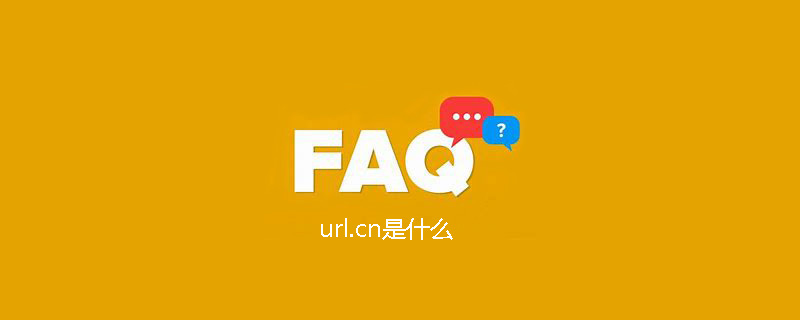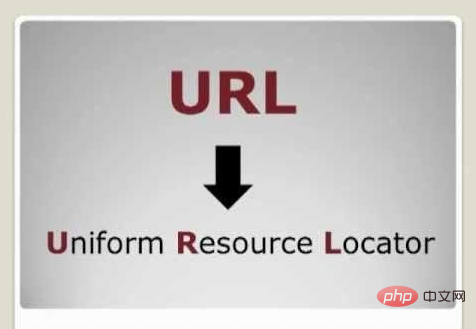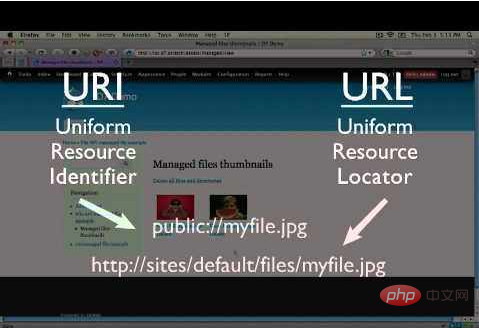

When we enter a web page, a string of English letters will appear in the address bar. Do you know what this string of English letters represents? Many people call this string of English letters a website address, but this is actually inaccurate. It is called a URL, and its full name is Uniform Resource Locator, which translates to "Uniform Resource Locator".

Related recommendations: "FAQ"
A complete URL includes – the protocol part, the URL, and the file address part. The protocol part is separated by //. In the Internet, we can use a variety of protocols:
·HTTP——HyperText Transfer Protocol
·FTP–File Transfer Protocol
·Gopher–The Internet Gopher Protocol
·File–Local File Transfer Protocol
·HTTPS–Secure Sockets Layer Hypertext Transfer Protocol (secure version of http)
in the address bar When entering a URL, there is no need to enter the protocol part. The browser will automatically fill in the default HTTP protocol.
We also often use the website address part, such as www.baidu.com, iMydl.tech, iMydl.com. This is a unique online name for a website.

If we remove the prefix of www, such as iMydl.com, this part is called the domain name. The rightmost part of the domain name is the top-level domain name. A common example is: .com represents a commercial organization. , .org represents a non-profit organization. .gov represents a government agency. .edu represents educational and scientific research institutions. Examples used to represent country top-level domain names: .cn represents China. .us means United States. .jp represents Japan, and topbook.cc represents the national top-level domain name of Cocos Islands.
Sometimes, branches of the head office, or other product websites under the company, will use a second-level domain name similar to the domain name. For example, the domain name of Tencent is qq.com, and its sub-products QQ mailbox uses the secondary domain name mail.qq.com, including Tencent Video v.qq.com.

From the first / after the domain name to the last /, it is the virtual directory part, starting from the last / to? So far, it is the file name part. After the # sign is the anchor part. The virtual directory, file name, and anchor are not necessary parts of the URL. Although a standard URL address looks very complicated, in fact, when we enter the URL, we only need to enter the URL or domain name.
The above is the detailed content of What is url.cn. For more information, please follow other related articles on the PHP Chinese website!




